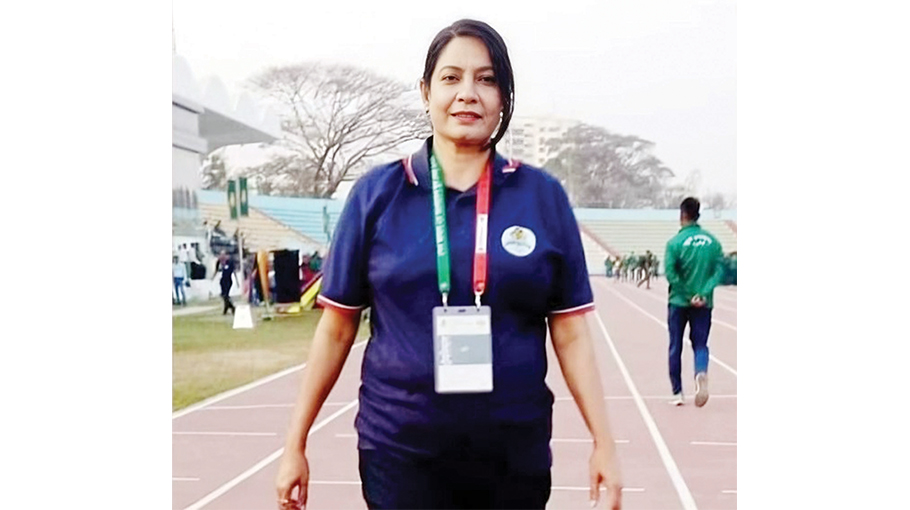Sultana runs her way to national glory

Hailing from a poverty-stricken rural village steeped in tradition, Sultana Parvin Lovely defied the odds to become Bangladesh's "Fastest Woman" a remarkable seven times. Born into a conservative family where daughters were often seen as a burden, Sultana's arrival wasn't met with joy by her father. Rejected at birth by her teenage mother, she spent her early years under the loving care of her grandmother and aunt.
Life took a harsh turn at the age of seven when Sultana returned to her family home in Khulna. Poverty was a constant struggle, forcing her to abandon her education in the fourth grade. Alongside her father, she toiled in the fields, literally pulling the plough with their sole ox.
However, fate had a different plan. A school sports day unearthed Sultana's hidden talent. Effortlessly leaving her competitors in the dust in the 100-metre race, a passion for running ignited within her. Driven by a desire to lift her family out of hardship and the tragic loss of a younger sister due to a lack of medical care, Sultana yearned to compete.
Donning a borrowed jersey and running barefoot, she dominated local events, capturing the attention of officials from the Bangladesh Jute Mills Corporation (BJMC). "Where did she come on earth from?" they reportedly exclaimed in delight, marvelling at her raw talent and unknown origins.
Offered a job based on her athletic prowess, Sultana embarked on a gruelling training regime. Each day, she travelled a staggering 35 kilometres to practice at the Sheikh Abu Naser Stadium.
Her journey wasn't easy. "Boys would make suggestive comments, tease me, throw stones, and make obscene gestures" she recalled, describing the harassment she faced while wearing sportswear on her way to and from practice.
Despite the challenges, her dedication paid off. At the young age of 16 in 1992, Sultana earned the coveted title of "Fastest Woman in Bangladesh," a feat she would repeat an impressive seven times throughout her career. She represented her country proudly in 25 international competitions, securing a remarkable 45 gold medals at the national level. In recognition of her outstanding contributions, she received the National Sports Award in 2016.
"Bangladesh has a wealth of talented athletes," Sultana remarked. "Things are far easier now than in my day. With proper support, I believe there's potential for many more like me to emerge."
Sultana's path was riddled with obstacles. Societal disapproval for pursuing athletics was a constant hurdle. Conservative villagers ridiculed, harassed, and even threatened her, deeming her chosen path inappropriate for a woman.
Yet, she persevered, finding unwavering support in her mother, whose unwavering encouragement and belief in her dreams became a source of unshakable strength.





